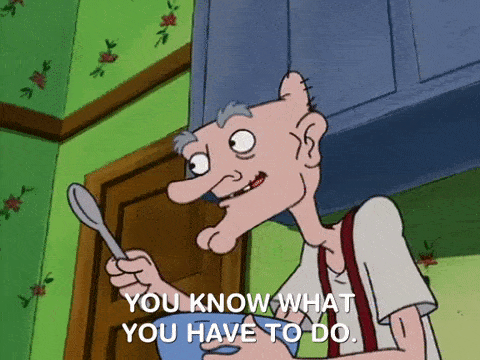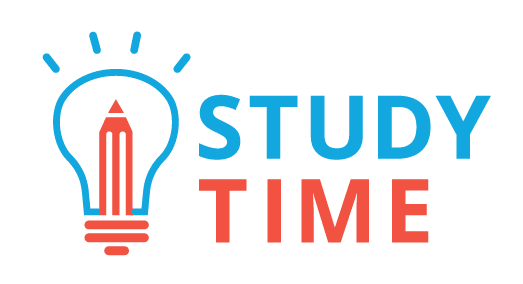Logging into NZQA for external results feels like a cold slap-in-the-face to the commitment-free summer months.
While the world can agree that 2020 can stay in the past, looking at your results can drag up memories of the year that was. We’ll assume most of them aren’t awesome.
In saying this, we’re here to help you recover from those 2020 grades. Not only that but also how to frame your thinking to tackle whatever 2021 has in store.
Moving on From Exam Results
Whether you aced every single exam, or never want to look at your NZQA login again, it’s worth leaving your exam feelings in 2020.
Why?
Well, we tend to label ourselves. Our brains like to organise things, and if we did bad, our brain tells us we’re awful at everything.

On the flip side, you don’t want to be the person that thinks they can coast through life because they got Excellence on Unfamiliar Text one time.
Think of it as a self-fulfilling prophecy; if you think you’re going to do bad, the chances of you doing bad is higher. If you think you’ll do good, well, not many of us think that way.
Ultimately, leaving the 2020 school-version of you in 2020 is a good idea. Let that person go and focus on how you want to be in 2021.
How Can I Do This?
Firstly, some reflection on the previous year would be good. We know we just told you to forget it but hold on a moment for the sake of learning.
Some things to ask yourself may be:
- What did I find the most difficult last year? Why?
- What was I successful in last year? Why?
- What (or who) do I attribute my achievements to?
- If I had to do last year over again, what would I do differently?
- Am I feeling prepared for the year ahead? Why?
- Did the people around me help me get through the year and my studies?
The list could go on forever. The important thing to be doing here is asking yourself why? As well as the what. There isn’t any use in dragging stuff up if you’re not doing anything constructive with it.

Therefore, you want to build on this self-analysis with some actions for the future. Some questions here that you may find useful are:
- What actions can I take to minimise my challenges?
- What do I need to do to keep up the things I’m happy with?
- Who can help me achieve my goals for the year?
- What resources would I need to succeed this year?
Avoid Social Media Traps
It’s all well and good to celebrate your hard work, but online comparisons with others can quickly turn toxic.
Sharing personal feelings about our results can compound feelings of negativity and worthlessness – both for yourself and others. Be mindful of what you choose to post about.

If you’re disappointed, switch off for a bit and do something to get your mind off exams. Go to the beach and enjoy the sun while you still can.
If you’re super proud, by all means, reward yourself, but don’t go around obnoxiously gloating to all your friends who didn’t receive the same marks. Show empathy for those whose exams didn’t go as planned, and keep in mind that you’ve probably felt what they are right now at some point in your life.
The Value of Positive Attitudes
We know it’s not as simple as being told to ‘be more positive!’
Feeling good about yourself can take a lot of work. Especially in the wake of a potentially confronting exam season.
The sooner you move on from the year that was, and look to the year ahead, you’ll be in a better position to go forward and make this year better than the last.
Having a positive attitude doesn’t mean that you’re cocky. Instead, it is about being optimistic for the future, rather than fearful.

Research has found that improving your attitude towards the future can be effective in preventing burnout. This means you’ll be more likely to keep the engine running all year.
Alternatively, people’s feelings towards the future tend to be more motivated by fear and anxiety when you feel that you may encounter unwanted consequences (e.g. a fail grade).
Why? People who have positive expectations about the future and make plans to achieve the goals they set are more resilient in the face of difficulties. This will also contribute to improving your wellbeing and confidence in your own abilities.
How Can I Use This?
Firstly, being aware of the impact of these feelings is a step in the right direction. Secondly, make good plans and address anxieties early.
It’s impossible to think that school won’t stress you out at all. Therefore, planning for rest, finding coping strategies, and actively problem-solving when you’re stressed are habits that are good to get into early.

Think of it like this: If you’re putting out small fires throughout the year, you won’t be needing a full fire crew when the stresses begin to pile up.
Make a Plan to Improve
This one’s a big one.
While it’s super easy to simply rid everything from your mind as soon as you see your marks, this moment right now is a critical opportunity to pause and plan.
You will never do better than last year if you don’t make a change. But the change can’t just be willy-nilly, it should be informed by experience and reflection.
As long as you’re unaware of your shortcomings, you can never transform for the better. Growth is a conscious process.

If you’re disappointed, you need to reflect on why you missed the grades. Work out what went wrong, put it to one side, and then keep moving forward knowing that these exams taught you some lessons to carry onto future challenges.
If you’re happy with your results, still do this! Ask yourself what you’re most proud of, assess where you performed the best, and consider why. Then, write down your key lessons from the exams in the form of a “tips sheet” for your future self.
How Do I Review My Results?
If you’re stuck, ask yourself:
What went wrong with my answers?
- Did I write the answers in the way that the examiners wanted?
- Did I understand the concepts in enough depth?
- Did I understand the concepts in enough depth?
- Did I manage my time well on the day?
What went wrong with my exam preparation?
- Did I do enough past exams?
- Did I have a plan of attack on how to study?
- Did I study in the most effective way?
- Did I study in the most effective way?
- Did I continuously self-assess my own knowledge as I was studying?
- Did I manage my time well?
Where was I successful and why?
- Even in the midst of the most terrible exam results, there will be some successes. That success is a sign of potential or progress, and needs to be reflected on so it can be replicated.
When asking yourself these questions, it may be that you need to reassess your study strategies for the year. Maybe you’ve decided some resources for the year would be beneficial *cough StudyTime only cough*.
Wherever your reflection takes you, be sure to find an action that you can take to make a difference in 2021.
Remotivate Yourself
You’ve got a big year ahead of you, friend. There’s no time for wallowing. This is gonna be your best one yet.
Whether you got straight E’s or N/A’s doesn’t matter. Either way, you’ll need to actively “reboot” your brain, and motivate yourself for the year ahead. The mahi isn’t going to do itself.

Why do you study? Being aware of what fulfils you about school will empower you to want to do well throughout the year.
Think about goals that truly resonate with you. If you set a goal based on an external cue (e.g money), you’re much less likely to stick with it than if you set goals based on reasons that provide you with natural satisfaction or a sense of self-worth.
For example, you might want to do well at school so that you can widen your career opportunities, or be the best version of yourself possible. You’re much less likely to lose motivation if you think of this reason every time you’re close to giving up.
Imagine Yourself in Your Ideal Position in Five Years Time
What are you doing? What have you done to get there? Who are you with? What are you wearing? Where are you? What does it feel like to have the grades and success you desire?
Write down a description of this imaginary self somewhere, and describe it in great detail.
Identify and write down three “action steps” you can do now to make your dream a reality.
If you’re not even sure where to begin, start small. Every effort and every action gets you closer.

Get clear on what you really value, the belief systems you subscribe to, and the person you want to be. Don’t study for someone else.
There are plenty of selfish benefits to taking your education seriously that will carry you through the year, instead of something disposable, like money.
Once you’ve determined your “why”, your motivation to try throughout 2021 will come more naturally. Your results are behind you now, and later they’ll be but a distant memory.
For now, there’s no time like the present to make up for any shortcomings or build on your victories.
Find a Real Reason to Try
Motivation is a real fickle thing to get right.
If the government was paying us all to study, we’d definitely be doing a lot better at school. This is an example of extrinsic motivation: when an outside source (money) can influence our behaviour (study) for the better.
For example, you might be motivated to join the gym because you want to look good in our togs for New Years at the Mount.
Extrinsic motivation can be powerful short-term but is not a sure way of making lasting change.

If a “bikini-body” for New Years is your only motivation to go to the gym, you’re probably going to slip back into our old ways once the holiday’s over. Likewise, if your only motivation to study comes from being paid for it, what’s going to happen if whoever’s paying you runs out of cash?
As author Alfie Kohn explains, extrinsic motivators only change our behaviour, not the underlying values or attitudes behind the behaviour. As a result, there’s no permanent change.
If you want to make your 2021 exceptional, extrinsic motivation may help for a day or a week, but not for the long-stretch it takes to achieve sustainable success.
Instead, we should be looking at intrinsic motivation, your ’real’ reason for trying.
Intrinsic motivation occurs when we act without any external bribes. This type of motivation is sustainable because the behaviour arises from natural satisfaction, enjoyment or gratification. Rather than something finite, material or disposable.
In short: intrinsic motivation comes from passion – not coercion.
If you’re thinking: “but I don’t HAVE an intrinsic motivator” – I bet you’re wrong. Think back to the last time you had the drive to do something that wasn’t imposed on you by someone else’s expectations.
The 5 Why’s
Trying out an exercise known as the “five why’s” can help you find your intrinsic passions.
Try and think of the last time you felt really motivated to do something, and then ask yourself why you felt the desire to try at all. Keep asking “why” until you get to the root cause of your passion (five times over should do it).
It might feel stupid but persevere.
Let’s say that you felt most motivated when organising a coin collection day for the SPCA with your classmates:
Moment: Organising collection day.
Why I was motivated: We did something good, and we did it together.
Why I enjoyed doing something good: I got to help dogs.
Why I enjoyed helping dogs: Dogs are harmless, affectionate and innocent animals that often are mistreated.
Potential Motivator: helping others who are in vulnerable situations.
This is just one example, but there are hundreds of potential motivators. The key is finding out which one applies to you.

Once you’ve locked down your motivation, constantly remind yourself of it. If your motivation is independence, remember how good it will feel to move out of home when you get that Vic Scholarship. If your motivation is eventually getting a job that helps others, visualise yourself in a hospital administering life-saving medicine to the ill.
The more that you view your intrinsic motivation in a positive light, the more likely they are to want to fuel it with concrete action.
Doing this will give you the sustainable motivation that will carry you throughout the school year and onto success.
Let’s Smash 2021
Trying to improve is not something reserved for people who don’t think they’re doing well. It’s a vital skill for everyone.
Reflect, strategise, and go into 2021 with the feeling that you can make improvements. We all can.

0 Comments